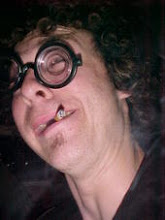
Published posthumously, this is the final statement of a great man. Schumacher considered this his most important book, the culmination of his life’s work. It is essentially an articulation of the philosophical framework upon which Good Work was conceived.
Lucid, eloquent and passionately argued, Schumacher states his case against the strictly physicalist view of reality. “Materialistic Scientism”, as he dubs it, is a view that’s influence has steadily grown since the Enlightenment and has come to dominate Western thought. It’s a view that has reduced everything, life, consciousness, self awareness down to blind processes that can be understood by the physical laws of science.
His refutation takes the form of a series of illustrative parrallel concepts in which Schumacher sketches out what in means to be a self-aware rational being.
Beginning with an explanation of philosophical maps, he points out that in our modern world view, anything remotely related to metaphysics or even outside the realm of objective empiricism has been more or less pushed off the map. Relegated to superstion and held up to ridicule by “science”, the coordinates literally no longer exist.
His next theme is adequateness; we can only see that which we are adequately capable of seeing. He uses the example of a book, something that means different things to a being that can percieve that it’s there, know that it is a book and be capable of understanding the meaning of it’s contents. Ones level of adequacy determining how one will percieve the book. His point being that if all we wish to study is objective inanimate matter, then accordingly the universe will appear dull and inanimate.
From there he explains what he calls the four levels of being:
Mineral = M (inanimate)
Plant = M+ X (life)
Animal = M+X+Y (conscious)
Man = M+X+Y+Z (self-conscious)
Furthermore, he argues, science is wholly unequipped to answer questions like “how should one live life?”. We’ve mistaken a means for an end. And consequently, ethics has been reduced to vulgar selfishness or at best utility. Here a contrast is drawn between what he calls the science of wisdom and the science of manipulation. With the string of success’ science has achieved, we’ve become overly ambitions and arrogant; we’ve thoughtlessly discarded the ancient wisdom of our ancestors. This is an idea he wishes to press into the readers mind again and again.
His chapter on divergent and convergent problems is one of the best in the whole book. Schumacher defines a convergent problem as one in which a universally applicable solution can be found; such as an engineering problem. A divergent problem, however, is one in which there is no clear single solution. Politics and teaching, he says are quintisential examples of this. Schumacher’s view is that problems of this nature must be transcended or as Einstein said: “You can’t solve a problem with the same consciousness that created it.”
Luminous, insightful, almost poetic at times; this impassioned plea is a constant in the swirling turmoil of a world whose advancing technology is out pacing it’s sense of purpose.













No comments:
Post a Comment